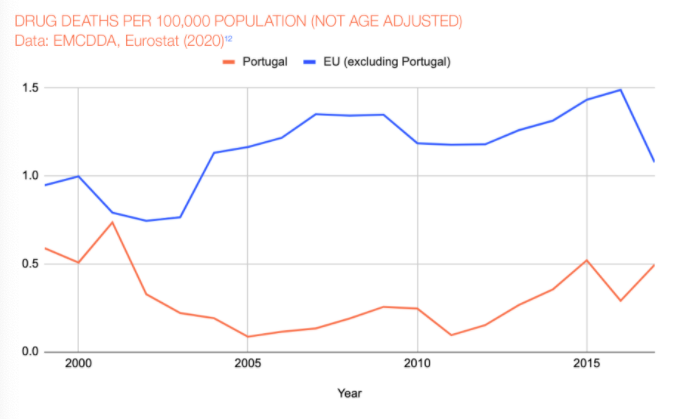Australia Needs Drug Decriminalisation, So Why Won’t Anthony Albanese Support It?
Albanese has made it clear he's not interested in drug reform - but Australia desperately needs it.

Federal Labor MP Alicia Payne has come out in support of a push to decriminalise hard drugs in the ACT, but Opposition Leader Anthony Albanese has refused to support the health-first approach to drug laws.
In an interview with The Australian on Tuesday, Payne asserted that the decriminalisation of drugs like ice, heroin, speed, cocaine and ecstasy is an “important tool in our battle against the damaging effects of illicit drugs.”
“The evidence shows that criminal penalties for possessing small amounts of drugs do not stop people using drugs, and can actually destroy lives and make it harder for people to seek the help they need,” Payne told The Australian, calling for a health-based, harm-minimisation approach. “So yes, I do support decriminalisation as a health-based, harm-minimisation approach and an important tool in our battle against the damaging effects of illicit drugs.”
But when asked about it in a press conference on Wednesday morning, Albanese said he did not agree with Payne’s comments. When asked why he disagrees, he argued that “the current settings are appropriate.”
The comments come after pushes for harm-minimisation approaches to drugs have been made in both the ACT and Victoria in recent weeks.
Drug Decriminalisation Isn’t A Radical Idea
Drug decriminalisation (not the same thing as legalisation, btw) is far from a new concept, and we’ve seen it work successfully overseas. Let’s take a look at Portugal.
Drugs really hit Portugal in the 1980s, and they hit hard, with one in 10 people using heroin at the time. Overdose deaths were common, the crime rate skyrocketed and the rate of HIV infection was the highest in the European Union at the time. It’s no exaggeration to say it was a total drug crisis.
But this all changed in 2001, when Portugal became the first country in the world to decriminalise possession and consumption of all illicit substances. While dealing, growing and trafficking is still a criminal offence, if you’re caught in possession of a personal supply, it is now treated as an administrative offence.
This means you will be given a warning, a small fine or directed to appear in front of a commission (comprised of a doctor, lawyer and social worker) to discuss harm reduction strategies and treatment. You won’t have a criminal record for this, and it’s far less likely to ruin your life than being caught with drugs in Australia.
To put it simply, the policy focuses on genuinely rehabilitating and helping people with substance abuse issues, rather than simply criminalising it.
Does Drug Decriminalisation Actually Work?
If we look at the stats, Portugal serves as living proof that decriminalisation works.
In the five years following the reform, Portugal saw a significant decrease in drug-related deaths. While this number has ebbed and flowed since 2006, deaths — to this day — have consistently remained below the 2001 levels, and Portugal’s deaths are still below average for the EU.

Image: Transform Drug Policy Foundation
In addition to lowering the drug-related death toll, actual rates of drug use have remained below the EU average since the reform, with Portugal having some of the lowest drug use rates among 15-34-year-olds across all of Europe. Drug-related prison sentences have also dropped from 40 percent to 15 percent.
Since Portugal’s radical policy in 2001, some level of drug decriminalisation has been implemented in 30 countries across the world. The extent and effectiveness of this varies from country to country, but it means that Australia following suit doesn’t seem as far-fetched as politicians would have you believe.
So Drug Decriminalisation Is A Silver Bullet?
Portugal’s drug reform may seem like the perfect solution to the rest of the world’s drug problems, but it’s not quite that simple. While the drug reform in 2001 was the catalyst for change, the fact that Portugal has gone from an absolute substance abuse crisis to one of the leaders in the world when it comes to drug policy is far more complex than the legislation itself.
What the change in reform actually did was change the entire conversation around drugs in Portugal, with language in legislation — as well as in medical care, workplaces, homes and social settings — shifting.
As The Guardian explained, language shifted from the sort of punitive, “junkie” approach we often see in Australia, to treating those with substance abuse issues as the people with addiction disorders they truly are. This, in turn, made it less taboo and far easier to seek the help they actually needed.
Portugal’s policy is still far from perfect, with there still being a need for more safe injecting spaces and anti-overdose medication being more accessible. But even in its flaws, we can learn some valuable lessons about how Australia could reform our drug culture.
The Problem With Australia’s Response
Regardless of where you look in Australia, our response remains largely the same. Just last week in Victoria, a harm minimisation bill presented by MP Fiona Patten was ruled out by both the government and the opposition.
“Our position is we have no plans to decriminalise,” treasurer Tim Pallas said at the time. “It is clear that we do have in place diversion programs for the possession of small quantities of drugs. We’ve spent a lot of time going after those who manufacture and market in volume…illegal drugs.”
While it’s hardly shocking to see Australia so far behind when it comes to drug laws, the mentality that our system of hunting down the big drug traffickers not only isn’t working — it misses the point entirely.
At both a state and federal level, from the Liberals and Labor, there is simply no urgency to reform legislation — despite the fact that it has proven time and time again to minimise harm and actually help people get the treatment they so desperately need.


